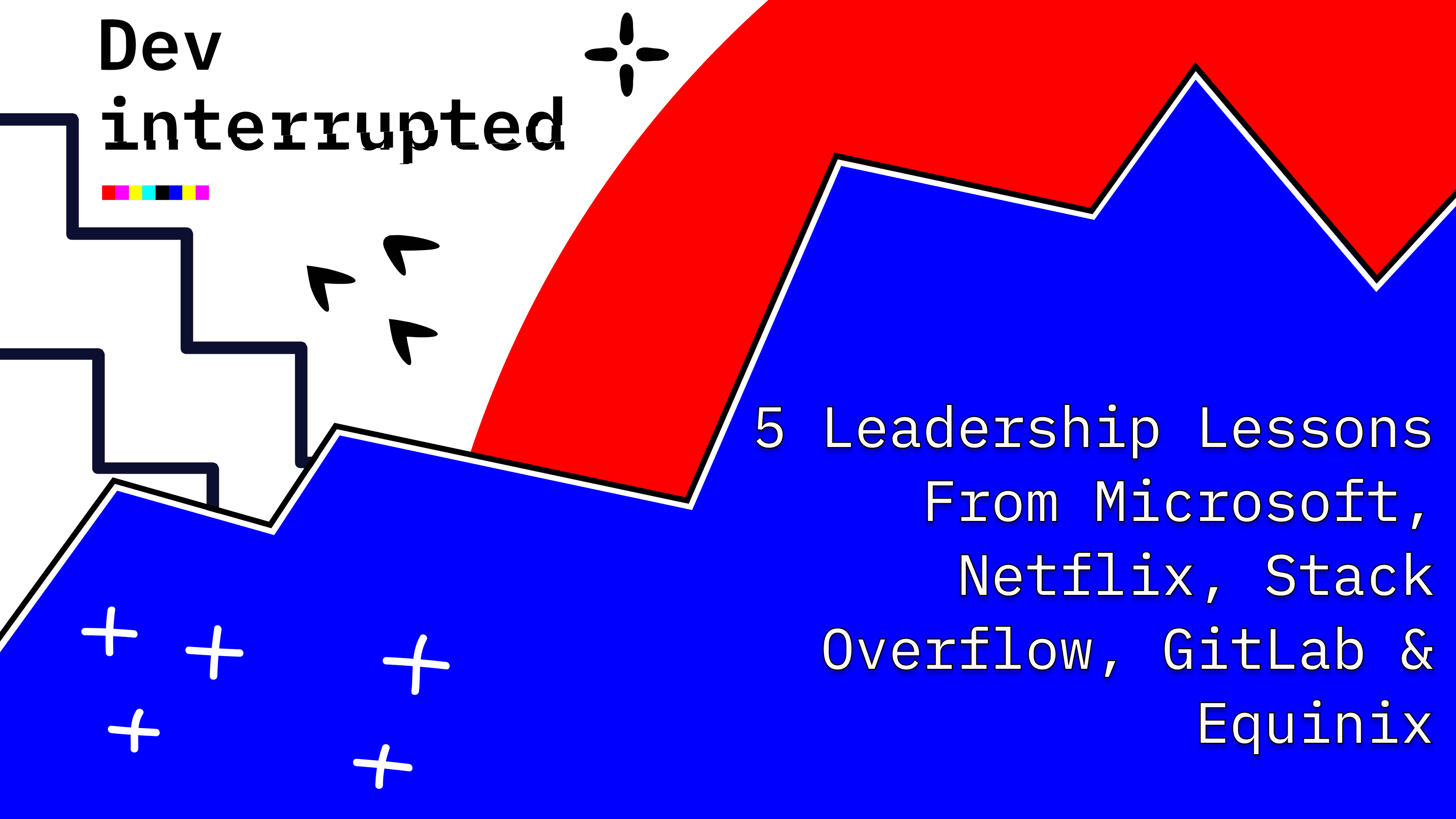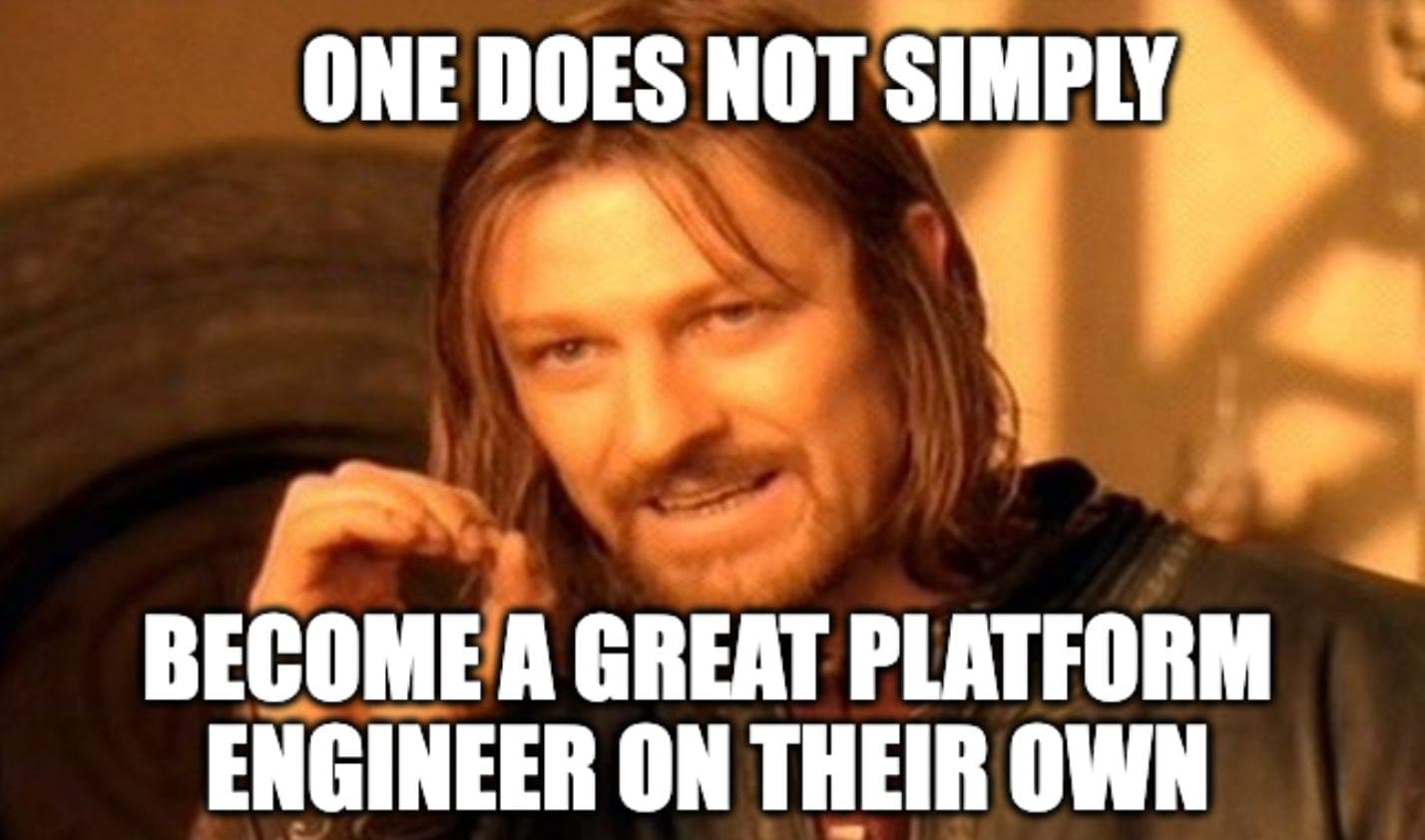Three years into my software engineering career I was loving life. I could fix anything in the codebase with no doubts in my ability. I was confident, too. Most 24-year-olds are. When I was offered the opportunity to become a dev team lead I jumped at the chance. With so much confidence, what could go wrong?
The first few months hit me like a freight train. I might have been a good developer, but I wasn’t a good leader - not yet. It was a humbling experience that I continue to grow from to this day. Great leaders understand that learning is a process that evolves over time, but only if you open yourself up.
In the first year as the host of the Dev Interrupted podcast, I have had the pleasure of interviewing and learning from some of the best engineering leaders in the business.
Here are 5 of their most inspiring lessons:
1. Always be delegating
Brendan Burns, Corporate Vice President at Microsoft
Brendan is widely known as one of the co-founders of Kubernetes. But he is also responsible for managing over 650 engineers at Microsoft. Even though Brendan takes time to schedule as many one-on-ones as possible - sometimes as many as 14 in a day, and something he views as a priority as more teams become remote - he knows such large teams can only be successfully managed through delegation.
Let go of the instinct to jump into every project. It’s OK if your teams make mistakes. They’re going to learn, but only if you give them the space and agency to grow. Stepping away from micromanaging can feel scary, but it will set your organization up for long-term success and your employees will thank you for it.
2. Remote-first, not remote-friendly
Shweta Saraf, Senior Director of Engineering at Equinix
Shweta had the unique experience of undergoing a fully-remote acquisition during the pandemic. Her small team was acquired by Equinix, the largest data center company in the world. As if this adjustment wouldn’t have been difficult enough on its own, Equinix wanted Shweta and her team to teach them - an organization with over 30,000 employees worldwide - how to implement remote-work best practices.
To be as successful as possible with this transition they chose to embrace remote work completely. There would be no half-measures. If they were going to become a remote-work company, they would be remote-first, not remote-friendly.
Want to prove you’re the smartest engineer in the room? Share this Dev Interrupted Download with your friends, colleagues, and team members.
3. Leadership with empathy
Ben Matthews, Director of Engineering at Stack Overflow
Ben wants leaders everywhere to know that no one has ever done a better job because they were scared, stressed, or worried about their future. Especially not in jobs centered around creativity and problem-solving like software development. Providing people with benefits such as mental-health days does more for an organization’s productivity than measuring hours worked ever could.
When you take care of people they will work better and faster - that’s also what they want to do. Everyone wants to be successful. Value creation happens when people are provided for, not when they are treated like widgets.
4. Comparison leads to unhappiness
Kathryn Koehler, Director of Productivity Engineering at Netflix
Kathryn believes that what’s being delivered is ultimately of greater importance than how something is being delivered. Though she is in charge of making sure engineering teams at Netflix run smoothly and efficiently, she takes great care when evaluating a team’s performance. She understands that productivity isn’t simple math.
That’s because every project is different. The customer base is different, the use case is different, personas are different, and where a team is within the software development life cycle is different. Ranking teams against each other shouldn’t be the goal. Success is best measured in context, not in competition.
5. Avoid meetings
Darren Murph, Global Head of Remote at GitLab
Darren tells anyone that will listen there is a quick way to improve your meetings: make them harder to have. He believes people deserve to be able to focus on their work. No one wants to sit on video calls all day. Zoom fatigue is real. Focus should remain on critical day-to-day functions, not on hopping in and out of meetings that leave you feeling exhausted and unproductive.
Leaders should embrace tools like Slack that allow teams to gather consensus asynchronously. Reserving synchronous time for purposeful meetings like making decisions or sharing important status updates.




